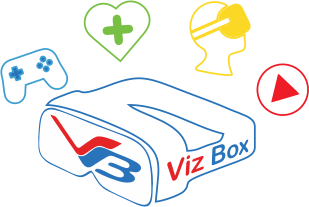Stroke Rehabilitation
Skyla VR (Virtual Rehabilitation)
In 2023, we were approached by a Stroke Rehabilitation company who were working with a 14-year-old named Skyla, who had experienced a stroke in 2022.
Skyla had already received support from the NHS, followed by a private rehabilitation company, but was finding her rehabilitation exercises overwhelming.
We quickly developed the prototype of the SKYLA VR (Virtual Rehabilition) app, which uses immersive gameplay to encourage Skyla to push herself with her recovery exercises at home as well as in sessions. The applications records the uses progress in the form of a scoring system, allowing them to physically see their own progress. This is also backed up by data collection for in session so the physician or specialist can also see how the uses is recovering. This includes value insight such as; how many times the left hand has been used as opposed to right giving a clear healthcare development plan for the specialist to support the user.
Following excellent feedback from Skyla and her family, as well as her stroke rehab team, we approached University of Liverpool to help validate our work. We are now completing a Participatory Research Study with them while supporting more people to access our medical intervention.
Therapy Hand
This Medical device is in development and is patent pending.
Working together with our disability and stroke consultants we have completed a basic proof of concept (TRL 3) combining a pneumatic rehabilitation glove with third-party EEG
technology and tested by two users with spastic hemiplegia, both saw clear and lasting improvements in movement
and flexibility. This demonstrated the combination of technology as the basis for The Therapy Hand rehabilitation
system that can support patients as an early intervention therapy and then progress towards regaining the use of
their hand and regain full independence or maintain supple muscles and attempt to limit the effect of spasticity and
contracture.
The Therapy Hand can then be offered to stroke patients as part of their recovery pathway as they leave hospital;
from 4-5 days post-stroke. This will then give early physiotherapy support ahead of referral, and at home between inperson
physiotherapy sessions. This will allow greater improvements on the Fugl-Meyer assessment (FMA) and enhance physiotherapy sessions.

Lorem ipsum dolor sit amet, consectetur adipiscing elit. Ut elit tellus, luctus nec ullamcorper mattis, pulvinar dapibus leo.
